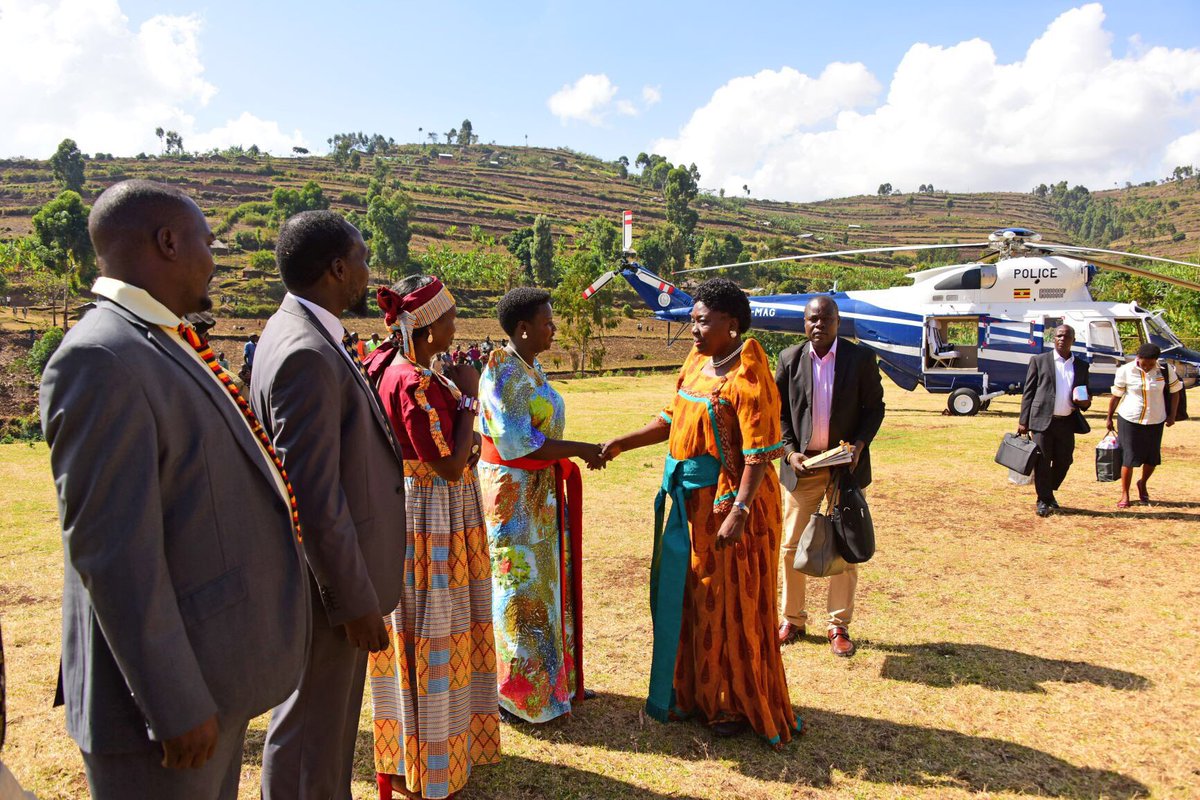
BUKWO – The speaker of Parliament Ms Rebecca Kadaga has given Sebei sub-region districts a one-month ultimatum to produce working plans to end Female Genital Mutilation in the area.
Ms Kadaga made the directive on January 18 while officiating at the annual Sabiny culture day held on Riwo sub-county in Bukwo district.
Annually, for more than 22 years, Sebei holds the Culture Day on November 30 under the auspices of Reproductive, Educative and Community Health. But last year, it was not held and was pushed to January 18, 2019.
Culture Day is commemorated with the goal of accelerating awareness for total abandonment of harmful cultural practices of Female Genital Mutilation and Child Marriage in the Sebei sub-region and is funded by the government of Uganda, with development partners UNFPA and UNICEF.
“I have seen pastors and elders of Sebei districts commit themselves to end FGM but what is the input of local governments? I have given Bukwo, Kween and Kapchorwa districts one month to produce a working plan towards ending FGM and hand it to my office for a discussion,” said Ms Kadaga.
She urged the anti-FGM crusaders and local leaders in Sebei sub-region to also develop, strengthen, and support specific and concrete actions directed towards ending female genital mutilation.
She described FGM as an outdated practice and abuse to the dignity of the girl-child that has no room in modern society, urging the Sabiny to stop it henceforth. “This cutting of girls must stop,”
This comes barely a week after about 13 girls in Kween district were subjected to FGM on January 14 at the watchful eyes of the local leaders and police.
Reports on the ground indicate that public ceremonies celebrating the illegal “season” of female genital mutilation (FGM) have been taking place even after the closure of the “cutting season” in 2018 unchallenged by the authorities in Kapchorwa, Kween and Bukwo districts.
FGM in Sabiny sub-region is a long-standing cultural practice, which continues for reasons that vary from place to place and heritage to heritage. The main intention in the past was to enforce fidelity and chastity among women. It was also believed to be a rite of passage into womanhood.
FGM/C is a deeply embedded social practice that is thought to be thousands of years old and in Sebei sub-region where it is practised, it is carried out because it always has been–it is simply part of life -on the basis that it is considered essential for marriage.
Even where there is awareness of the problems caused by FGM/C, the practice continues because of the link to girls’ and women’s acceptability in society and to their marriageability.
Although a law passed in 2010 banning FGM in Uganda has helped to bring the number of incidents down, communities that continue to perform the rite do so secretly and The REACH programme, an anti-FGM crusader refers to such communities as hotspots.
Ms Kadaga said local leaders and society should put in concerted efforts in educating these communities through public awareness campaigns, including in the media, especially the radio to condemn FGM.
She explained that although education is the only effective measure to fight against FGM, using force — including arresting and sending culprits to prison should be adapted to end the inhuman practice.
Dr Bernadette Sebaduka of United Nations Population Fund [UNFPA] urged the local leadership to improve coordination and participation in addressing the harmful traditional/cultural practices, the contribution and different roles of the community, in the entire FGM abandonment process.
Dr Sebaduka called upon all leaders to embrace the fight for total abandonment of FGM and ending Child Marriage: “While we recognized and appreciate culture, there are certain cultural practices like FGM that cause pain, disease or death. These practices need to be abandoned since they do not serve the needs of all community members,” Dr Sebaduka said.
She urged elders who are the custodians of culture to commit and support the fight to end FGM and child marriage.
Ms Beatrice Chelangat, the Director General of The REACH programme said girls who do not undergo FGM grow up to be healthy women and no less female than girls who undergo FGM.
She said sensitising locals about such issues would go a long way in changing the mindset of communities that still practice FGM and that The REACH programme was committed to educating the communities to ensure FGM is abandoned.
She said marshalling inter-faith and cross-border efforts for elimination of FGM, bringing on board of local leaders, education and skilling of girl-child, encouraging the Sabiny and Pokot people in the six districts of Uganda and the Sabaot, Kalenjin, Kuria and Pokot communities in western Kenya to abandon FGM and using the grandmother approach could see total abandonment of FGM.
“Bringing an end to female genital mutilation requires a broad-based, long-term commitment, my experience over the past 21 years has shown that there are no quick or easy solutions and elimination of FGM requires a strong foundation that can support successful behaviour change and address the core values and enforcement mechanisms that support the practice,” said Ms Chelangat.






